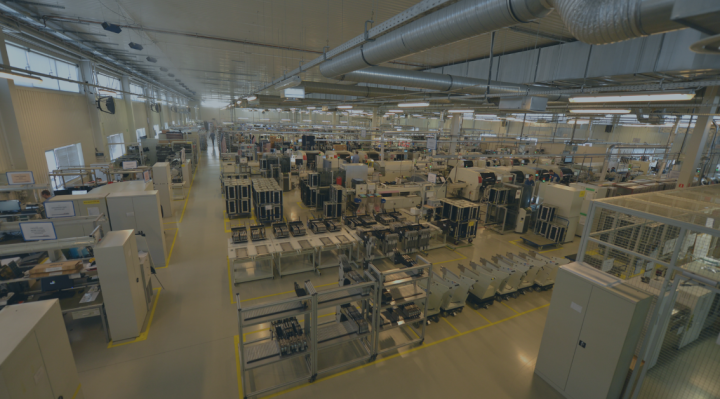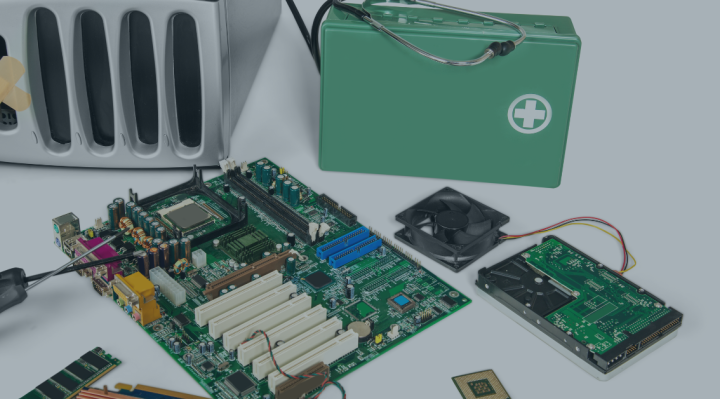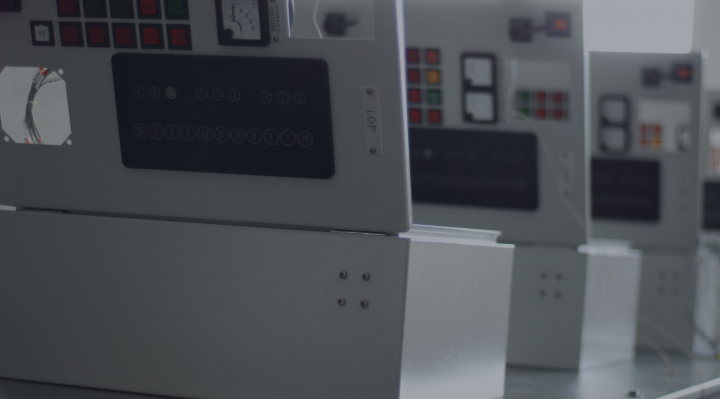The growing popularity and presence of electronic devices in industry and the consumer market has resulted in a growing demand for PCB assembly services. Although manufacturers initially assembled PCBs only in their own plants, over the years OEMs have tended more towards outsourcing PCB assembly.
What are the benefits of outsourcing manufacturing of PCBs?
Actually, there are many of them. A good contract electronics manufacturer provides the best investment value and has extensive experience in building small and specialised series of components as well as mass production.
1. Lower capital expenditures
Outsourcing PCB assembly is a chance to avoid excessive capital expenditures in relation to the actual needs of your company. It is particularly profitable if your business does not require constant mass production of electronic components and relies on small expenditure.
SMT assembly requires a building or a separate manufacturing area to meet relevant high standards. It is also a huge initial investment in the purchase of SMDs and quality control machines. Also, in the case of specialised production, such as for the aerospace industry and medical projects, this means the costs of obtaining the right certificates for the manufacturing of printed circuits.
Apart from the costs incurred for the infrastructure (its purchase, adaptation to your company's production profile, its maintenance and upkeep), an equally important issue is the constant expenditure on assembly service - personnel costs:
- constant cost of yearly salaries,
- training and certification costs,
- additional social packages, e.g. health or retirement insurance.
Knowing this, OEMs in the electronics industry can achieve economies of scale by outsourcing PCB assembly to a good EMS. Benefits of outsourcing manufacturing include a certain advantage in the electronics market. The funds saved on the production of electronic components can be invested in other sectors of your activity, at the same time considerably lowering the unit cost of product, so it can be offered at a competitive price.
2. Rationalisation of operating costs
Your own SMT assembly involves more than the costs of production line and the people to operate it. Unlike an electronics manufacturer that starts its own SMT assembly, an EMS company also has a well-organised production environment - storage, logistics, procurement and management of materials, as well as experience gained in the course of business, so that it can use proven system solutions.
An experienced EMS is able to cope with factors affecting cost effectiveness, e.g. related to inventory management, in the case of:
- short component life cycle,
- fluctuations in prices and availability of materials,
- the need to introduce design changes to the product.
The benefits of outsourcing manufacturing to an experienced provider of well-managed SMT assembly services are also a good alternative for small-capital entities, such as start-ups, for whom capital tied up in material for a period of several months is of critical importance.
3. Access to specialist knowledge and competences
It is worth considering services of a professional EMS because of their manufacturing skills. A contract electronics manufacturer is a highly qualified specialist in this regard, as its operations focus only on SMT assembly and related issues.
An experienced EMS can quickly and efficiently analyse the product documentation and recommend significant changes in the design, even before production starts, in order to optimise the time of product batch manufacturing or to detect design defects and non-conformities in materials. The certificates held by EMS are equally important, e.g. in respect of business continuity management, which proves whether and how a given contractor is prepared for emergency situations, or narrow specialisation certificates, such as for medical projects; if you operate in such an industry, it is a very important aspect of cooperation.
4. After-sales and other additional services
If the relationship is built properly, your EMS may turn from yet another subcontractor rendering services for your company into an equal business partner. Such cooperation gives you a number of benefits of outsourcing manufacturing.
A good EMS has a team of experienced experts who will support you at every stage of the product life by advising on design for manufacturability (DFM) at the design stage or providing help in the production of first prototypes. Thanks to this, the manufacturing of existing products will be smooth, and you will be able to focus your resources on new products.
An EMS with an extensive range of services can also offer support once your product is introduced to the market. It can analyse user-reported failures for you to learn how quickly and in which areas products are damaged in actual use. This is important data, and thanks to broad cooperation it is delivered straight to the OEM’s door or inbox.
5. Support in new product introduction (NPI)
The development of a new product often involves the so-called early-stage problems that may occur despite in-depth analysis of initial assumptions. Therefore, the support of your EMS can prove invaluable in the NPI process. One of benefits of outsourcing manufacturing is that an experienced contractor can provide proper advice on DFM to verify whether the product is well designed for mass production.
If you have a good relationship with the EMS that understands your needs, in the long run it will save you a lot of time and costs, also at the prototyping stage. Thanks to better knowledge of your needs, it will build a prototype faster, while introducing the necessary design modifications that are essential for introducing the product into long-term production.
6. Comprehensive production and assembly
PCBs are often not finished products in themselves. The new products include comprehensive “box build” solutions that require design teams to coordinate the activities of multiple suppliers to obtain a finished product. This is a gigantic management task that, with the large fragmentation of components built for different manufacturers, often leading to situations where the parts do not match. In such conditions, even a slight lack of communication results in additional costs and delays.
The benefits of outsourcing manufacturing include saving much time and money, as an EMS can implement your project from assembly to box-build, consolidating most of the work in one place. When all system components are built in the same place and by the same contractor, you can be sure that the final assembly will go smoothly.
7. Production regardless of desired volume
Many contract EMS suppliers offer the benefits of outsourcing manufacturing, regardless of order quantity. They do not care whether you need a short series of several hundred PCBs or a batch of up to 10,000 copies of assembled printed circuit boards. They will help you in both cases.
The assembly of large volumes of PCBs at significantly lower costs requires huge investments in state-of-the-art SMDs and control devices, and the employment of dedicated personnel who have to be trained to properly operate the production line.
A good EMS supports its clients in the production of high-mix low-volume (HMLV) PCB assembly series, usually ranging from tens to hundreds of product versions and/or their configurations, the production batches of 1 to 1000 pieces, as well as the production of low-volume high-mix (LMHV) PCB assembly series, i.e. series from thousands to tens of thousands of pieces.
8. Better supply chain management
Flexible management of supply chains is not an easy skill. However, a good EMS with access to large supplier chains is able to easily manage problems such as a periodic shortage of parts on the market or the obsolescence of components. A contract electronics manufacturer is also able to handle additional tasks closely related to logistics and technical issues, such as warranties and repairs.
Thanks to its knowledge and experience in supply chain management, an EMS is a great partner especially for small and medium-sized enterprises. It is an opportunity for considerable financial savings and quality improvement, while increasing the flexibility and your own potential, which often turn out to be key for the commercial success of electronic companies.






